Brussels attacks: Have blunders hampered Belgian investigation?
- Published
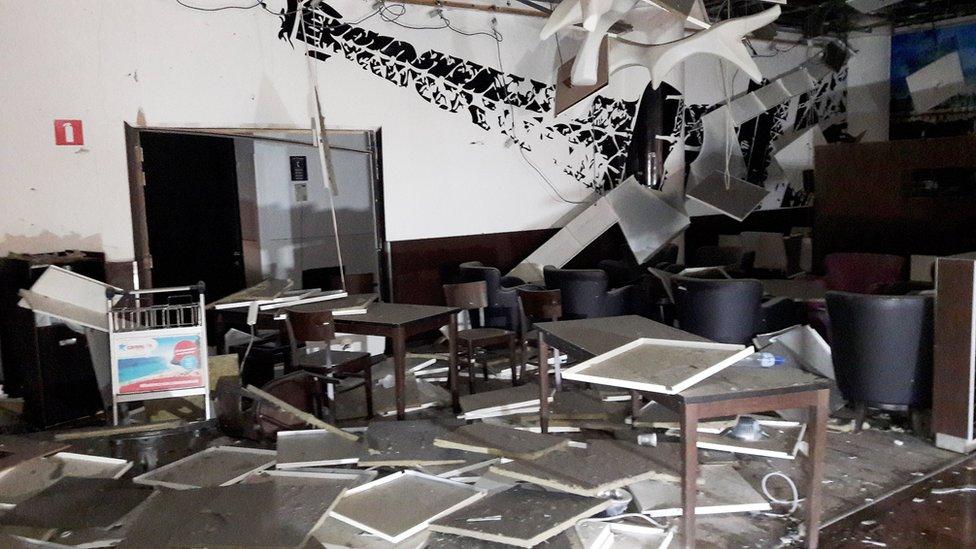
Unconfirmed reports have suggested that Belgium had been warned of plans to attack the airport
Belgian authorities have admitted to several errors before, during and since the Brussels attacks of 22 March.
Brussels had already been prepared for an attack, as several of those who carried out the Paris attacks on 13 November had come from Belgium.
And yet security forces were often a step behind the suspects, and there are fears that reported operational failures on the day of the bombings meant that reactions were sometimes too slow.

Why was the metro running?
The Belgian government has insisted that its response to the airport bombings on 22 March was clear. The decision to evacuate the Brussels metro and five rail stations was taken at 08:50 on 22 March, 52 minutes after two bombs went off at Brussels airport at 07:58.
But the third bomb went off at 09:11 on a metro train at Maelbeek station, in the heart of the European quarter. Metro company STIB said it had received no order from the government to halt services. The second attack was well over an hour after the first and ministers are under pressure to explain what went wrong.
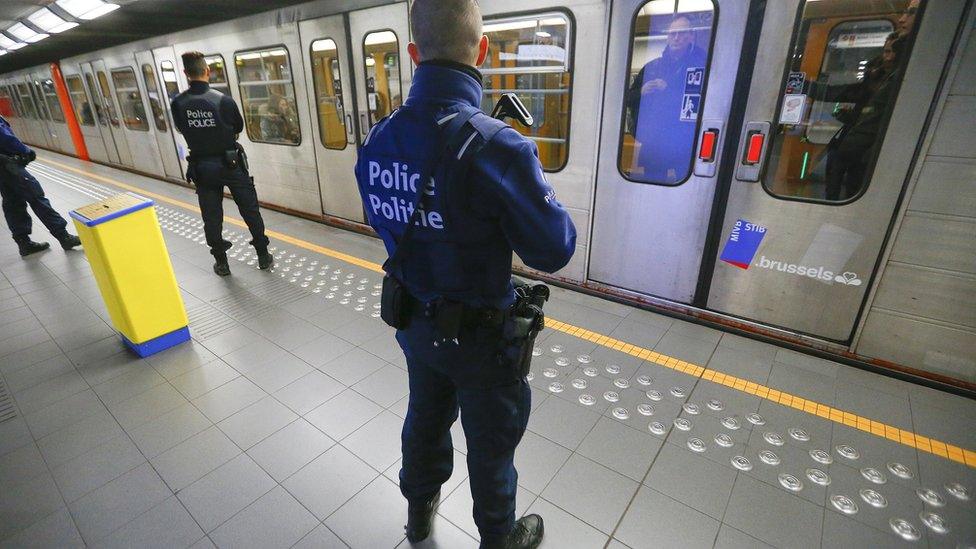
Trains were still running 21 minutes after the government had decided to evacuate the metro
Rail operators also said they had been given no direction from the government. Train services continued for some time after the third bomb and operator Infrabel only put its internal crisis plan into action at 09:45.
The Belgian government has said these details are speculation and questions over timings will be assessed by a parliamentary investigation committee.

Security lapses at airports
On 15 April Transport Minister Jacqueline Galant resigned over accusations she had ignored lapses in security at Belgian airports.
A leaked report showed weaknesses in security procedures at Belgian airports had been identified by EU inspectors in March last year.
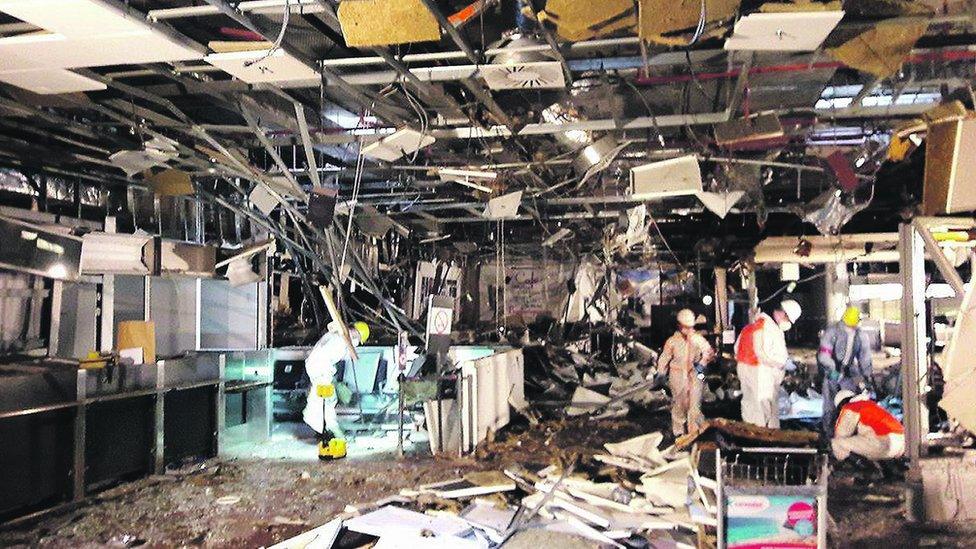
Sixteen people died in the bombings at Brussels airport
Ms Galant had initially denied having seen the report, which was leaked by opposition parties. Prime Minister Charles Michel initially defended her before admitting that the report had been discussed by her office.
The 2015 European Commission report, and another from 2011, both published by public broadcaster RTBF, external (in French), cited "serious deficiencies" and said airport security programmes, air carriers and suppliers were "not adequately monitored".
The inspectors said one of the Belgian bodies charged with ensuring security could not carry out its responsibilities because of a "lack of resources".

Bomber brothers repeatedly missed
A string of errors have been made over the two brothers who blew themselves up on 22 March but it was not just Belgian officials involved.
The case of Ibrahim el-Bakraoui has shone an uncomfortable light on failures in intelligence-sharing across Europe.
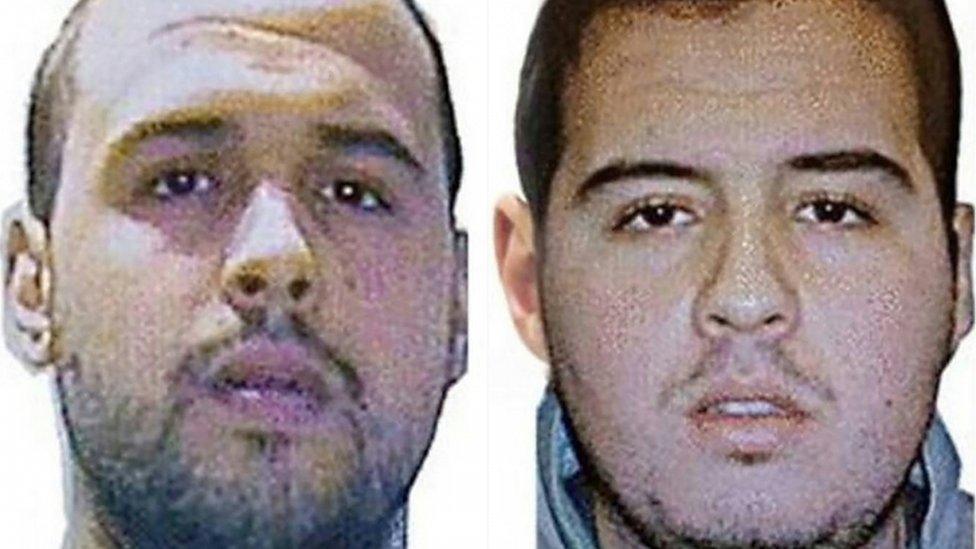
Khalid el-Bakraoui (L) blew himself up on the Brussels metro and Ibrahim el-Bakraoui was one of the airport bombers
Both brothers, Khalid and Ibrahim el-Bakraoui were violent, convicted criminals freed early from jail in line with parole recommendations.
Where Belgium and other countries failed, was in understanding the danger they posed as Islamists linked to so-called Islamic State (IS).

Turkish warnings
Ibrahim el-Bakraoui was freed in October 2014, having served four years of a nine-year jail term for a crime which involved opening fire on police with a Kalashnikov. The Belgian government has already criticised the courts for failing to keep tabs on him. He broke his parole conditions and was picked up by Turkey near the Syrian border in June 2015.
Although Turkey's president said authorities in Ankara had warned Belgium and the Netherlands that he was a "foreign terrorist fighter" that has been strenuously denied by the Dutch and Belgian governments.
The Dutch argue that the Turks did not follow the steps they would normally adopt with suspects identified as radicalised Islamists. A "very urgent" note sent by the Turkish embassy on the day he was flown to Amsterdam merely provides his name.

The Dutch government has published a "very urgent" note sent by the Turkish foreign ministry to its embassy in Ankara on 15 July
As a result, the Dutch allowed Ibrahim el-Bakraoui to slip through Schiphol airport because they had no record of him. And the Belgians were still treating him as a petty criminal, rather than an Islamist.
The Belgian government says it asked for more information from Turkey and heard nothing until November.
By 25 September, Ibrahim el-Bakraoui had been placed on a US counter-terrorism watch list. An Interpol red notice for his brother was issued in December for his brother, Khalid.
An alert from police in New York about both brothers was issued on 16 March and passed on to Dutch authorities.

Mistakes in hunt for Paris suspect
For four months after the 13 November gun and bomb attacks in Paris, Belgian police were searching for key Paris suspect Salah Abdeslam. Brussels went into lockdown for days afterwards amid fears of an imminent attack.
He was finally caught on 18 March, a few hundred metres from where he had grown up, an event thought to have brought forward the Brussels attacks four days later.
It has since emerged that police in Mechelen, north of Brussels, had failed to pass on information as far back as early December 2015 about a radicalised accomplice, Abid Aberkan, who had been in touch with Salah Abdeslam.
The two were eventually caught at Salah Aberkan's mother's address. Police said the source was unreliable but acknowledged a mistake had been made.
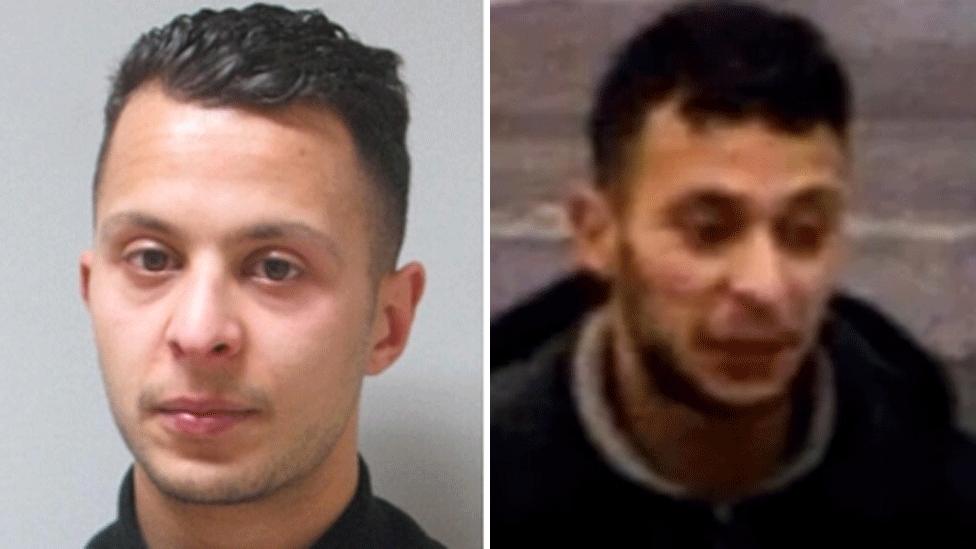
Could Belgian investigators have done more to press Abdeslam to say whether more attacks were planned?

Failings in Abdeslam interrogation
Salah Abdeslam's capture was hailed as a major Belgian security success, and during his initial questioning the next morning he is said to have spoken freely to an investigating judge. But he was questioned for only two hours between his arrest and the Brussels bombings.
He was not interviewed again before the attacks, even though a detonator and weapons were found at the safe house in which he had been hiding until 18 March.
We now know that despite his arrest, at least three close accomplices - Khalid el-Bakraoui, Ibrahim el-Bakraoui and Najim Laachraoui - were able to blow themselves up four days later. Khalid rented the Brussels flat that Salah Abdeslam had been hiding at until 15 March as well as the Charleroi house used before the Paris attacks. Laachraoui is thought to have been the bomb-maker.

Were clues missed before the 22 March attacks?
There have been several unverified reports that Belgian authorities were warned in advance of attacks planned against Brussels airport.
According to Skai TV in Greece, a map and layout of the airport at Zaventem were found on a computer and USB stick at a flat in the Pangrati area of Athens which was used by Paris attacks ringleader Abdelhamid Abaaoud in January 2015.
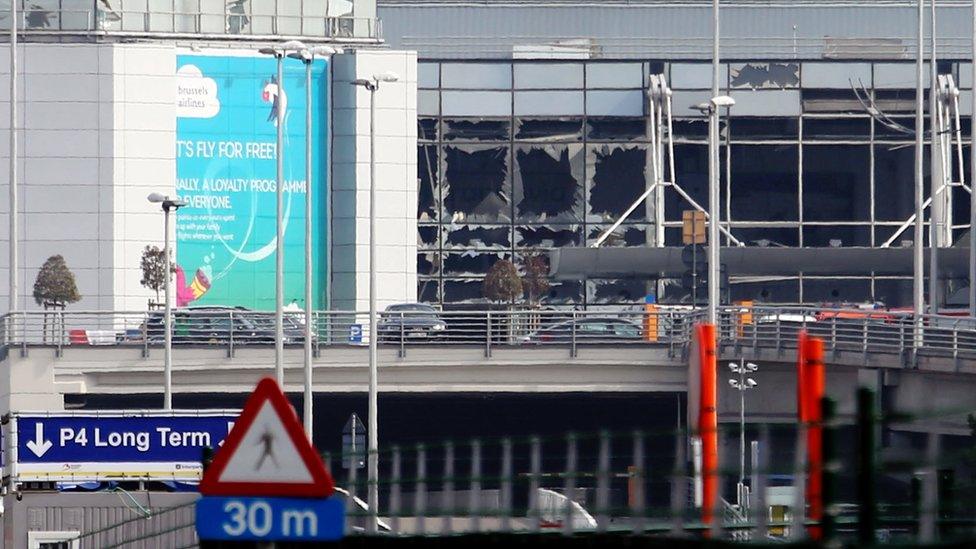
Two bombs exploded in the departures hall at Brussels airport, close to crowded check-in desks
Belgian prosecutors have not confirmed the allegation but the flat was searched by Greek police a few days after a Belgian raid on an Islamist cell in the town of Verviers in which two suspects were killed.
French daily Le Monde reports, external that handwritten notes and attack plans were found on the Athens computer hard drive - and that the details matched in every respect the bombing of Brussels airport.

Blunders in the hunt for the Brussels bombers
The search for the third airport bombing suspect, wearing a hat and white jacket, was beset with difficulties for Belgian police, who carried out 100 searches in connection with the attacks. Initially, there were reports that he was bomb-maker Najim Laachraoui but then he was declared to have died.
A man named by Belgian media as Faycal Cheffou was arrested but later freed.
Belgian police released CCTV footage of a man wanted for the attack on Zaventem airport
His release was a major setback for investigators, who had to re-launch their appeal for help in finding the man in the hat, releasing new video of him walking through Brussels after the airport attack.
On 9 April, shortly after the appeal, police swooped in the Anderlecht district of the capital and arrested Mohamed Abrini, a 31-year-old Belgian of Moroccan origin.
He had been wanted for months over the Paris attacks, having been filmed at a petrol station with Salah Abdeslam, two days before the attacks there.
But Abrini, until his arrest not directly linked to the Brussels attacks, then admitted to prosecutors he was the man in the hat.
With the arrest the same day of Osama Krayem, suspected of being an accomplice of Khalid el-Bakraoui at the Maelbeek metro station, all the major suspects in the Paris and Brussels attacks are now either dead or under arrest.
However, questions still remain about the conduct of the investigation - and Belgian police are continuing to carry out operations and announce terrorist-related charges.
